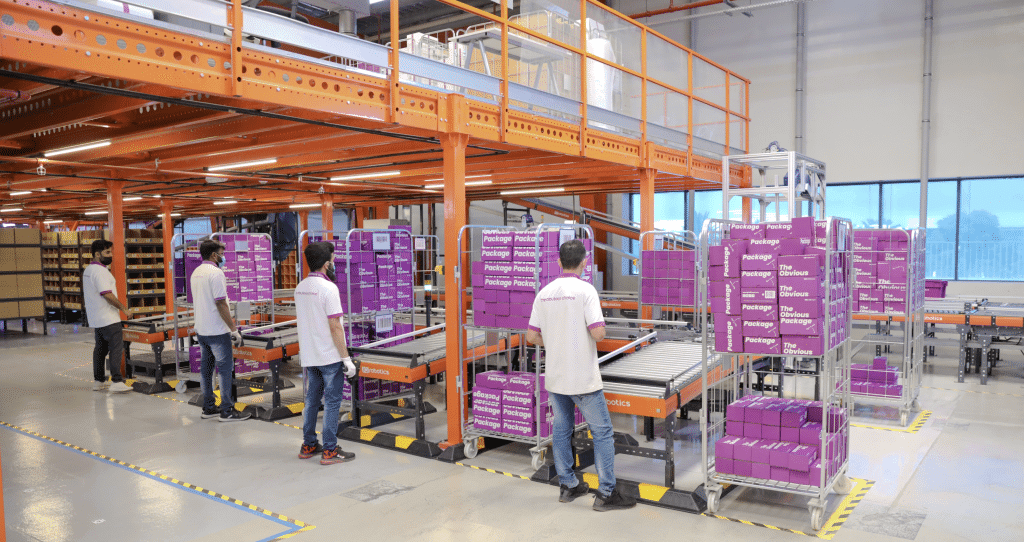Why Fulfillment Matters in E-Commerce
E-commerce has changed the way people shop but building a website and collecting orders is only the beginning. The real challenge begins after a customer clicks “buy.” This is where e-commerce fulfillment comes in. Fulfillment is the engine of online retail, covering everything from storing inventory to picking, packing, shipping, and handling returns. Done right, it ensures fast deliveries, happy customers, and repeat sales. Done poorly, it leads to delays, errors, and damage to brand reputation. Understanding how fulfillment works and why it matters is essential for every business that wants to grow in today’s competitive digital marketplace.
What Is E-Commerce Fulfillment?
E-commerce fulfillment is the end-to-end process that ensures a customer’s order moves smoothly from checkout to delivery. It includes:
- Receiving & Inventory Management: Products arrive at a fulfillment center and are logged into inventory systems.
- Storage: Goods are organized for easy, efficient access.
- Order Processing (Pick & Pack): When an order comes in, items are picked and carefully packed.
- Shipping & Delivery: Orders are dispatched through courier or last-mile delivery networks.
- Returns Management: Many fulfillment providers also manage reverse logistics, ensuring smooth returns and exchanges.
Every stage requires accuracy and speed. A single delay can disrupt the customer journey, which is why fulfillment is often described as the backbone of e-commerce growth.
Why Fulfillment Is Critical for Business Growth
Logistics and fulfillment are crucial to modern e-commerce success because shoppers expect fast and error-free delivery. If a business fails to meet those expectations, customers quickly move to competitors. Robust fulfillment services minimize errors, cut delivery times, and lower operational costs while improving customer satisfaction. The impact of fulfillment extends beyond logistics; it influences brand reputation, customer loyalty, and long-term growth.
The Effect of Fulfillment on the Customer Experience
The customer journey doesn’t end at checkout. How products are packaged, shipped, and delivered defines how customers perceive a brand. Seamless fulfillment leads to fast, accurate, and safe deliveries, while delays or damaged goods frustrate customers and drive them away. Studies show that many shoppers stop buying from a brand after just one bad delivery experience. Reliable fulfillment builds trust and converts one-time buyers into loyal customers.
The Role of Fulfillment in Scaling Operations
As businesses grow, their operations become more complex. A brand moving from 100 orders a month to 1,000 cannot rely on the same systems. Scaling requires automation, efficient shipping solutions, and often multiple warehouses to meet rising demand. Smart fulfillment provides the tools and insights needed for inventory planning and demand forecasting, preventing stockouts and optimizing costs. This ensures growth doesn’t compromise service quality.

In-House vs Outsourced Fulfillment
Businesses have two main options: handling fulfillment in-house or outsourcing to a third-party logistics provider (3PL).
| Fulfillment Model | Pros | Cons |
|---|---|---|
| In-House Fulfillment | – Full control over inventory and packaging – Cost-effective for very small order volumes | – Time-consuming for owners – Difficult and expensive to scale – Higher error risks with large volumes |
| Outsourced Fulfillment | – Access to professional expertise and technology – Scalability to meet changing demand – Faster deliveries through optimized warehouse networks – More time for sales and marketing | – Less direct control – Service fees increase with order size |
The Role of Technology and Automation in Fulfillment
Technology drives modern fulfillment. From barcode scanning to AI-powered inventory management, automation reduces errors, lowers costs, and speeds up order processing. Shipping software integrates directly with e-commerce platforms like Shopify, WooCommerce, and Magento, syncing orders in real time. For growing businesses, automation is not optional; it’s essential to keep pace with demand and maintain service quality.
How the Right Fulfillment Partner Accelerates Growth
The right fulfillment partner does more than ship products. They provide efficiency, consistency, and customer satisfaction. With expertise in inventory management, logistics, and shipping, a strong fulfillment partner enables businesses to expand into new markets, deliver faster, and strengthen their reputation. This turns fulfillment from a cost center into a growth engine.

Choosing a Fulfillment Service for Long-Term Success
When choosing a fulfillment provider, businesses should consider cost, warehouse locations, scalability, and technology. Providers with multiple warehouses can reduce delivery times, while transparent pricing avoids hidden costs. Most importantly, the partner must align with long-term goals, offering flexibility, real-time tracking, and strong customer support as the business grows.
Conclusion
E-commerce fulfillment is far more than a backend process. It is a strategic driver of growth, customer satisfaction, and brand reputation. Whether managed in-house or outsourced, fulfillment determines how efficiently and reliably a business can deliver on its promises. By investing in the right systems and partners, companies unlock growth opportunities, strengthen loyalty, and compete successfully in today’s digital-first economy.
Follow us on Instagram for insights, updates, and a behind-the-scenes look at how IQ Fulfillment is powering smarter e-commerce growth across the GCC and beyond.
FAQs
What is E-Commerce Fulfillment?
It is the process of receiving, storing, picking, packing, and shipping customer orders, including returns management.
Why does fulfillment matter for business growth?
It directly impacts customer satisfaction, repeat purchases, and brand reputation.
What are the stages of the fulfillment process?
Key steps include inventory management, storage, order processing, shipping, and returns.
Should a business handle fulfillment in-house or outsource?
In-house can work for small volumes but is costly and complex at scale. Outsourcing to a 3PL provides technology, speed, and scalability.
How does technology improve fulfillment?
Automation tools integrate with e-commerce platforms to reduce errors, improve efficiency, and support scalable growth.
